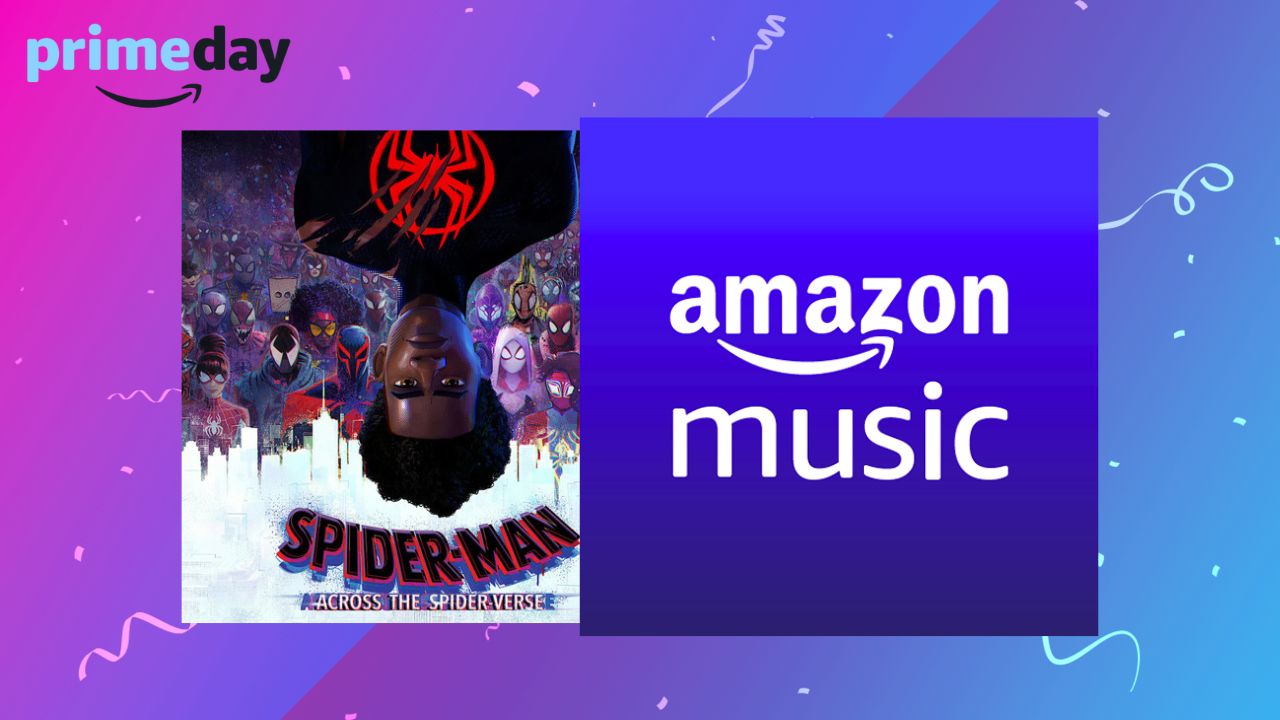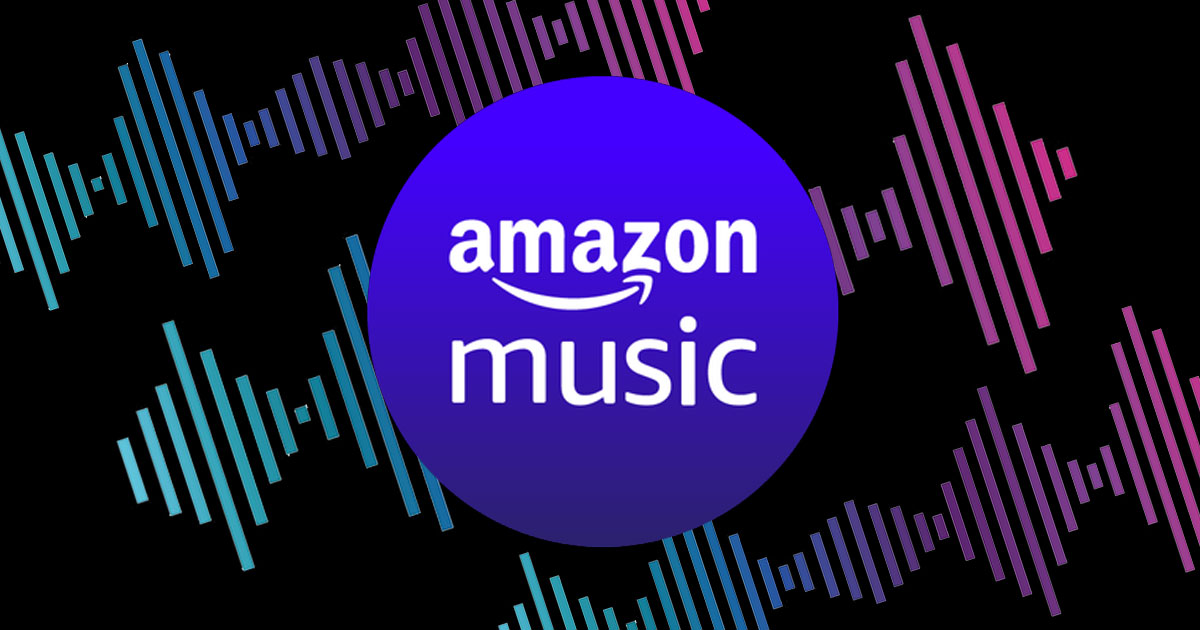Introduction
Amazon Music has become one of the leading streaming platforms, offering a vast collection of music for its users. However, some users have experienced frustration and disappointment when they discover that certain songs are being censored on Amazon Music. This censorship raises several questions and concerns about the platform’s policies and restrictions.
As music lovers, we rely on streaming services to provide us with access to a wide range of artists and genres. We expect these services to provide an uncensored experience, allowing us to explore music in its entirety. However, the issue of music censorship on Amazon Music has left many users wondering why their favorite songs are being altered or removed.
In this article, we will delve into the reasons behind music censorship on Amazon Music. We will explore potential factors such as licensing restrictions, offensive language or explicit content, copyright infringement concerns, and user feedback. Additionally, we will discuss the challenges that arise when attempting to censor music on such a large scale and the role that music labels and distributors play in this process.
Furthermore, we will explore the steps users can take if they encounter censored songs on Amazon Music and wish to appeal the decision. By shedding light on these issues, we aim to provide insight into why certain songs may be censored and help users better understand the complexities of music censorship in the digital age.
While music censorship may be a contentious topic, it is important to approach it with an open mind. Understanding the reasons behind these decisions can lead to constructive conversations about the boundaries of artistic expression and the balance between content control and consumer freedom.
What is Amazon Music?
Amazon Music is a popular digital music streaming service offered by Amazon. It provides users with access to a vast collection of music, including millions of songs from various genres and artists. The service offers both a free tier with ads and a premium subscription that provides ad-free listening and additional features.
Amazon Music is available on various platforms, including web browsers, mobile devices, and smart speakers. Users can access their favorite songs, albums, playlists, and curated radio stations with just a few clicks or voice commands. The service also offers personalized recommendations based on users’ listening habits and preferences.
One of the standout features of Amazon Music is its integration with other Amazon devices and services. For example, users with an Amazon Echo device can simply ask Alexa, the voice assistant, to play their favorite songs or create custom playlists. The service also offers exclusive content, live performances, and original podcasts to enrich the listening experience.
Amazon Music provides a seamless and user-friendly interface, allowing users to discover new music, save their favorites, and create personalized playlists. With the ability to download songs and playlists for offline listening, users can enjoy their music even without an internet connection.
Overall, Amazon Music offers music enthusiasts a convenient and immersive way to enjoy their favorite tunes. It aims to cater to a diverse audience, providing a comprehensive collection of music across various languages, genres, and decades.
Understanding Music Censorship
Music censorship refers to the practice of restricting or controlling the content of songs in order to comply with certain standards or regulations. It involves altering or removing specific lyrics, sounds, or visuals that are considered offensive, explicit, or inappropriate. While censorship can take different forms and occur across various mediums, music censorship specifically focuses on regulating the content and language used in songs.
Censorship in music has a long history, with examples dating back to ancient civilizations. Over time, societies have imposed restrictions on songs for various reasons, including moral, religious, political, and cultural concerns. The motivations behind music censorship can vary, and the extent of censorship can differ depending on the context and governing authorities.
Music censorship can target different aspects of a song, including explicit language, sexually suggestive content, violence, and political or social commentary. The level of censorship can range from subtle alterations to complete banning or blacklisting of certain songs or artists. In some cases, entire genres or movements have been subjected to censorship due to perceived threats to the status quo.
The justification for music censorship often revolves around protecting societal values, maintaining public decency, or preserving national security. However, the practice of censoring art, including music, is not without controversy. Critics argue that censorship infringes upon freedom of expression, limiting artists’ ability to convey their thoughts, emotions, and messages through their work.
It is important to note that music censorship can also differ across regions and cultures. What may be deemed acceptable in one country might be censored or heavily regulated in another. These variations highlight the dynamic nature of censorship and its contextual nature.
With the rise of digital platforms and streaming services like Amazon Music, the issue of music censorship has become more prominent. As consumers, we are faced with the challenges of navigating through a diverse range of regulations, policies, and guidelines that shape the music we have access to.
In the next sections, we will explore some of the reasons why music censorship may occur on Amazon Music and delve into the complexities involved in censoring music on such a large scale.
Reasons for Music Censorship on Amazon
Music censorship on Amazon can be attributed to several factors and considerations. These reasons vary from licensing restrictions to concerns about offensive or explicit content, copyright infringement, and user feedback. Understanding these reasons helps shed light on the complexities involved in ensuring a safe and compliant music streaming experience for users.
Licensing Restrictions: Amazon Music operates under licensing agreements with music labels and publishers. These agreements outline the terms and conditions for the usage of copyrighted music on the platform. In some cases, these licensing agreements may impose restrictions on certain songs, requiring them to be censored or removed to comply with legal obligations.
Offensive Language or Explicit Content: To maintain a certain level of decency and adhere to community guidelines, Amazon Music may censor songs that contain offensive language, explicit content, or explicit imagery. This censorship aims to protect users from encountering content that they may find objectionable or inappropriate.
Copyright Infringement: Amazon Music has a responsibility to uphold copyright laws and protect the intellectual property of artists, songwriters, and music publishers. If a song on the platform is found to infringe upon copyright, the platform may choose to remove or censor the song to address these legal concerns.
User Feedback and Reporting: Feedback from users is an essential component in shaping the music streaming experience on Amazon Music. If users report a song for its content, offensive language, or explicit nature, Amazon Music may review the complaint and take action accordingly. This could involve censoring or removing the reported song to address the concerns raised.
It is important to note that the decision to censor a song on Amazon Music is not taken lightly. The platform aims to strike a balance between providing a diverse range of music and ensuring a safe and enjoyable experience for all users. However, the dynamic nature of music and varying cultural sensitivities make the task of censorship challenging.
In the next sections, we will explore the challenges faced when attempting to censor music on a large scale and the role that music labels and distributors play in this process. We will also discuss how users can appeal the censorship of songs on Amazon Music.
Licensing Restrictions
One of the primary reasons for music censorship on Amazon Music is licensing restrictions. As a digital music streaming platform, Amazon Music operates under licensing agreements with music labels, distributors, and publishers. These agreements outline the terms and conditions for the usage, distribution, and monetization of copyrighted music on the platform.
These licensing agreements play a crucial role in allowing platforms like Amazon Music to legally offer a wide range of music to its users. However, they also come with specific restrictions and obligations that must be adhered to. Failure to comply with these licensing restrictions can result in legal consequences, including copyright infringement claims and financial penalties.
In some cases, licensing restrictions may require certain songs to be censored or removed from the platform. These restrictions can stem from various factors, including explicit language, offensive content, or regional-specific regulations. Licensing agreements often have clauses that dictate the need for censorship to comply with local laws, community guidelines, or ethical considerations.
For example, if a song contains explicit lyrics, the licensing agreement may require Amazon Music to censor those specific words or phrases. Similarly, songs that feature offensive or explicit imagery may also be subject to censorship to maintain a certain level of decency and adhere to community standards.
Furthermore, licensing restrictions can be influenced by regional or cultural differences. Different countries have varying regulations and sensitivities when it comes to content consumption. Therefore, songs that may be acceptable in one country may need to be censored in another to comply with local laws or cultural norms.
It is important to note that licensing restrictions are not imposed by Amazon Music alone. They are determined through negotiations and agreements with music labels and distributors. These restrictions are in place to protect the rights of artists, songwriters, and music publishers, while also ensuring a fair and legal environment for digital music distribution.
Despite the efforts made by Amazon Music to provide a diverse and comprehensive music library, licensing restrictions can limit the availability of certain songs or require them to be altered for compliance. This can be frustrating for users who may encounter censored versions of their favorite songs or face limitations in accessing certain tracks.
In the next sections, we will further explore the reasons for music censorship on Amazon Music, including concerns about offensive content, copyright infringement, user feedback, and the challenges faced when attempting to censor music on such a large scale.
Offensive Language or Explicit Content
Another significant reason for music censorship on Amazon Music is the concern over offensive language and explicit content. As a global streaming platform, Amazon Music strives to provide a safe and inclusive environment for all users, which involves upholding certain standards and community guidelines.
Songs that contain offensive language, explicit lyrics, or explicit imagery may be subject to censorship on Amazon Music. This censorship aims to protect users from encountering content that they may find objectionable, inappropriate, or offensive.
Censoring songs with offensive language is a way to maintain a certain level of decency and respect for diverse audiences. It prevents users, especially younger or more sensitive listeners, from being exposed to explicit language that may be deemed inappropriate or harmful.
Moreover, explicit content in songs may include references to violence, sexually suggestive themes, or explicit descriptions. Censoring or limiting access to songs with explicit content is intended to create a more inclusive environment, free from content that some users may find uncomfortable or offensive.
However, the line between what is considered offensive or explicit can be subjective and dependent on individual preferences and cultural values. Different societies and regions may have varying sensitivities and standards when it comes to acceptable content in music.
Amazon Music faces the complex task of navigating these sensitivities and striking a balance between offering a diverse range of music and upholding community guidelines. This involves both automated systems and human moderation processes to identify and categorize songs with potentially offensive or explicit content.
It is important to note that the censorship of songs due to offensive language or explicit content is not exclusive to Amazon Music. Various streaming platforms and radio stations implement similar measures to comply with regulations, respect societal norms, and cater to their target audience’s preferences.
In the next sections, we will explore additional reasons for music censorship on Amazon Music, such as copyright infringement concerns, user feedback and reporting, as well as the challenges faced when attempting to censor music on a large scale.
Copyright Infringement
Copyright infringement is a significant concern for music streaming platforms like Amazon Music. As a platform that provides access to a vast catalog of music, it is crucial to uphold copyright laws and protect the intellectual property rights of artists, songwriters, and music publishers.
Songs that are found to be in violation of copyright laws may be subject to censorship or removal from Amazon Music. This is done to address the legal and ethical concerns associated with unauthorized use of copyrighted material.
Music copyright grants exclusive rights to the creators and owners of the music, including the rights to reproduce, distribute, publicly perform, and display the work. To make songs available on streaming platforms, music labels or distributors must secure the necessary licenses from the respective copyright holders.
If a song is uploaded to Amazon Music without obtaining the proper licenses or permissions, it can be considered copyright infringement. In such cases, the platform has a responsibility to take action to avoid legal repercussions and protect the rights of copyright holders.
Censoring or removing songs that infringe upon copyright helps maintain the integrity of the music industry. It ensures that artists and copyright owners are appropriately compensated for their creative work and maintains a fair playing field for all parties involved in the music ecosystem.
However, identifying copyright infringement in music can be a complex task. With a vast amount of music being uploaded to platforms like Amazon Music, it is challenging to detect every instance of copyright infringement. This is where the role of content identification technology and cooperation with music rights management organizations becomes vital.
Amazon Music employs advanced algorithms and content identification systems to detect potential copyright infringement. These systems analyze the audio data and patterns to identify matches with copyrighted material. When a match is found, copyright holders can request the removal or proper licensing of the infringing content.
While efforts are made to proactively identify and prevent copyright infringement, there may be instances where unauthorized songs slip through the detection process. In such cases, the cooperation of users and copyright holders in reporting and addressing copyright infringement is invaluable.
In the next sections, we will explore the role of user feedback and reporting in music censorship on Amazon Music and discuss the challenges faced when attempting to censor music on such a large scale.
User Feedback and Reporting
User feedback and reporting play a significant role in the music censorship process on Amazon Music. The platform values the input and concerns of its users and relies on their feedback to maintain a safe and enjoyable music streaming experience for all.
If users come across songs on Amazon Music that they believe should be censored or removed for reasons such as offensive content, explicit lyrics, or copyright infringement, they have the option to report these songs directly to the platform. Amazon Music provides a reporting mechanism that allows users to flag songs and provide details about the nature of their concerns.
User-reported cases of potentially offensive or infringing songs are reviewed by Amazon Music’s moderation team. They assess the reported content against the platform’s community guidelines, licensing obligations, and copyright laws. The team ensures that reported songs are appropriately addressed, either through censorship, removal, or other necessary actions.
However, it is important to note that the moderation process is not foolproof, and it relies on the accuracy and genuineness of the user-reported claims. False or inaccurate reports can lead to misunderstandings or unnecessary censorship of songs that may not actually violate the platform’s guidelines or copyright laws.
Amazon Music strives to strike a balance between maintaining freedom of artistic expression and protecting the well-being and sensitivities of its users. User feedback and reporting help the platform in this process by providing valuable insights into user perceptions, concerns, and expectations regarding the content available on the platform.
Additionally, user feedback and reporting assist in the continuous improvement of Amazon Music’s content moderation systems. Feedback from users helps identify areas that may require further attention in terms of content categorization, accuracy of censorship decisions, and overall user satisfaction.
Ultimately, user feedback and reporting create a collaborative environment where users can actively contribute to the ongoing efforts to provide a safe and compliant music streaming experience on Amazon Music. It reinforces the platform’s commitment to transparency, accountability, and responsiveness to its user base.
In the next sections, we will explore the challenges faced when attempting to censor music on a large scale and discuss the role that music labels and distributors play in the censorship process. We will also discuss the options available to users who wish to appeal the censorship of songs on Amazon Music.
Challenges of Censoring Music on a Large Scale
Censoring music on a large scale, as is the case with platforms like Amazon Music, poses numerous challenges. The vast amount of music available, the complexities of cultural sensitivities, and the dynamic nature of artistic expression all contribute to the difficulties faced by platforms in ensuring appropriate content moderation.
Volume of Content: With millions of songs available on Amazon Music, manually reviewing and censoring each song becomes an immense challenge. Although automated systems and algorithms assist in content identification, they are not foolproof and may require human intervention for accurate decision-making.
Cultural Sensitivities: Different regions and cultures have varying sensitivities and tolerances when it comes to the content in music. What may be considered acceptable in one culture may be deemed offensive or inappropriate in another. Navigating these cultural nuances and determining universal standards of censorship is a complex task.
Artistic Expression and Subjectivity: Music is a form of creative expression, and artists often use lyrics and imagery to convey their thoughts, emotions, and messages. Determining the line between artistic expression and offensive or explicit content can be subjective and open to interpretation.
Context and Intent: Censoring music requires an understanding of the context and intent behind certain lyrics or visuals. Some content may appear offensive or explicit at surface level, but it could be part of a larger artistic statement or social commentary. This necessitates a nuanced approach to censorship to avoid misunderstanding or misinterpretation.
Adapting to New Trends: The music industry is ever-evolving, with new genres, subcultures, and trends emerging regularly. Keeping up with these developments and understanding their impact on content moderation can be challenging. Platforms need to continuously adapt their censorship policies and practices to stay relevant and responsive.
Balancing Freedom of Expression: Censorship inherently involves the restriction of certain content. Balancing the need to maintain community standards and protect user well-being with the overarching principle of freedom of expression is a delicate task. Striking the right balance is crucial to avoid the stifling of artistic creativity.
Despite these challenges, platforms like Amazon Music are committed to providing a safe and compliant environment for music streaming. They continue to invest in technology, collaborate with industry stakeholders, and engage with user feedback to improve their content moderation efforts.
In the next sections, we will explore the role of music labels and distributors in music censorship on Amazon Music and discuss the options available to users who wish to appeal the censorship of songs on the platform.
The Role of Music Labels and Distributors
Music labels and distributors play a crucial role in the content that is made available on platforms like Amazon Music. They serve as the intermediaries between artists, songwriters, and streaming platforms, ensuring the proper licensing, distribution, and promotion of music.
Music labels sign artists and oversee the production and distribution of their music. They work closely with artists to ensure their creative vision is maintained while also adhering to legal and ethical considerations. Labels also negotiate licensing agreements with streaming platforms, such as Amazon Music, to make their catalog available to users.
Music distributors are responsible for distributing the music from labels to various platforms and retailers, including streaming services. They handle the logistics of delivering music to these platforms and work closely with the labels to ensure compliance with licensing agreements and any specific content requirements.
When it comes to music censorship, the role of music labels and distributors is significant. They are responsible for providing platforms like Amazon Music with properly licensed content that adheres to legal and ethical standards. This involves ensuring that the content they provide does not infringe upon copyright laws and meets the platform’s guidelines for acceptable content.
Music labels and distributors collaborate with streaming platforms in addressing concerns related to offensive or explicit content. They work closely with platforms to review and address user-reported cases of potentially objectionable or infringing songs. This collaboration helps ensure proper content moderation and accountability.
Moreover, music labels and distributors can provide guidance and assistance to artists in creating and promoting their music in a way that meets the standards set by streaming platforms. They play a crucial role in educating artists about content restrictions, advising them on potential lyrical changes or visual presentations to comply with regulations or community guidelines.
However, it is important to note that the decision-making power ultimately rests with the streaming platforms like Amazon Music. They have their own content moderation policies, and while labels and distributors can offer guidance, the final decision on what content gets censored or removed lies with the platform.
Overall, the collaboration between music labels, distributors, and streaming platforms is essential in ensuring the availability of a diverse music catalog that complies with legal requirements and community guidelines. By working together, they contribute to the cultivation of an enjoyable and responsible music streaming experience.
In the next section, we will discuss the options available to users who wish to appeal the censorship of songs on Amazon Music.
Appealing Censored Songs on Amazon Music
If users come across censored songs on Amazon Music and believe that the censorship is unwarranted or incorrect, they have the option to appeal the decision. Amazon Music provides a process for users to raise concerns and request a review of the censorship.
To appeal a censored song on Amazon Music, users can reach out to the platform’s customer support or use the designated reporting mechanism available on the platform. It is recommended to provide detailed information about the song, including the specific lyrics, content, or circumstances that led to the censorship.
Amazon Music’s moderation team will review the appeal and the specific concerns raised. They will assess whether the censorship decision complied with their policies, guidelines, and licensing obligations. If it is determined that the censorship was incorrect or unjustified, appropriate action will be taken to address the issue.
It is worth noting that the appeal process may take some time, as a thorough review of the reported content must be conducted. However, Amazon Music is committed to providing users with a fair and transparent appeals process to address their concerns.
Users should be aware that the outcome of an appeal is not guaranteed. The decision ultimately rests with Amazon Music, and they have the final say on whether to maintain or lift the censorship of a song based on their policies and guidelines.
It is also important to consider the context and intent of a song when appealing censorship. Providing additional information that helps demonstrate the artistic expression, social commentary, or cultural significance of the song may strengthen the appeal.
By providing an appeals process, Amazon Music aims to ensure that genuine concerns raised by users are heard and addressed. It reflects the platform’s commitment to fostering a collaborative and responsive environment that respects the diversity of opinions and artistic expression.
In the final section, we will summarize the key points discussed throughout the article without introducing any new information.
Conclusion
In conclusion, the censorship of songs on Amazon Music is a multifaceted issue with various factors at play. The platform strives to provide a safe and compliant music streaming experience by adhering to licensing restrictions, addressing offensive language or explicit content, and preventing copyright infringement. User feedback and reporting are crucial in shaping the content moderation process, and music labels and distributors play a key role in ensuring that properly licensed and curated music is available.
However, censorship on a large scale comes with its challenges, such as managing the volume of content, navigating cultural sensitivities, and balancing freedom of expression. Amazon Music continuously works to overcome these challenges through advanced technology, cooperation with industry stakeholders, and engagement with user feedback. It aims to strike a balance between maintaining community standards and supporting artistic expression.
If users encounter censored songs on Amazon Music that they believe to be unjustified, they have the option to appeal the decision. Through an appeals process, Amazon Music reviews and addresses concerns raised by users, providing a transparent and fair mechanism to assess the censorship of songs.
Moving forward, the ongoing dialogue and collaboration among streaming platforms, music labels, artists, and users will contribute to the evolution of music censorship practices. By sharing insights, understanding diverse perspectives, and embracing responsible content moderation, the aim is to create an environment that respects artistic expression, protects user well-being, and upholds the integrity of the music industry.
As listeners and consumers of music, it is important for us to be aware of the complexities involved in music censorship. By engaging in constructive conversations and supporting platforms that prioritize transparency and user feedback, we can contribute to a more inclusive and meaningful music streaming experience on platforms like Amazon Music.
Let us celebrate the power of music while also recognizing the importance of maintaining ethical standards, cultural sensitivities, and the rights of artists and copyright holders.

























